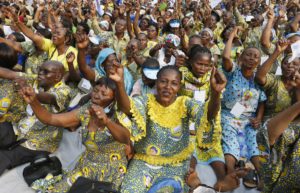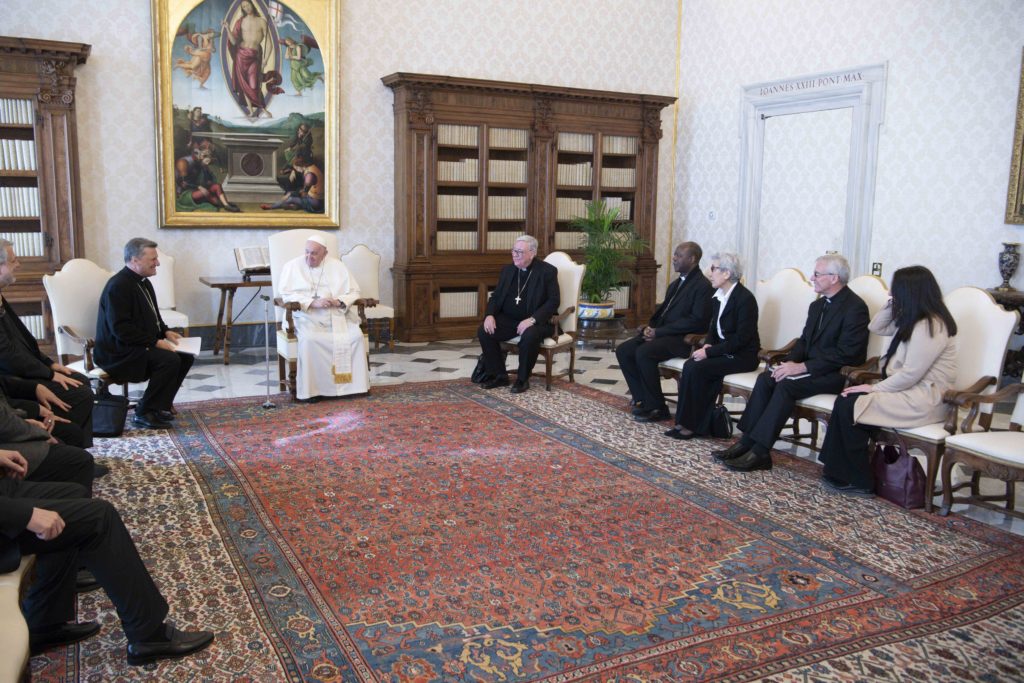ROME — At an extremely high level of magnification, one could say that in Catholic politics, the primary touchstone for the right has always been tradition, while for the left it’s the “sensus fidelium,” loosely translated as the “voice of the people.”
Of equally long-standing vintage, the Achilles heel of each side in Catholic contests is that they sometimes have a reductive view of their own point of reference.
Voices on the Catholic right, for instance, sometimes neglect the complexity of tradition.
During the liturgy wars of the 1990s, American Catholic conservatives often became enraged about church designs that didn’t place the tabernacle immediately behind the main altar — overlooking the fact that many historic basilicas, in which Mass has been celebrated for far longer than the United States has existed, don’t feature such an arrangement, since they have separate eucharistic chapels.
On the other hand, liberals often equate the “vox populi” with their own biases, gliding past the undeniable truth that solid majorities of global Catholic opinion today don’t necessarily align with conventional Western “liberal” positions.
To take one example, while Catholic opinion in Western Europe and North America may be strongly favorable to the “LGBT rights” movement, the same cannot necessarily be said of much of Africa, Eastern Europe, the Middle East, and parts of Asia and Latin America. It’s not at all obvious, for instance, that in a free and fair global Catholic referendum, the line of the German bishops on blessing same-sex unions would prevail.
That’s especially so given that more than two-thirds of the worldwide Catholic population of 1.3 billion today lives outside the West, a share that will rise to three-quarters by mid-century. Indeed, the demographic shift from the global north to the south as the Church’s center of gravity arguably was the most dramatic Catholic story of the 20th century, one that’s continuing into the 21st.
These thoughts come to mind in light of the ongoing Synod of Bishops on Synodality, which is currently building toward its first crescendo this October in Rome, and which will reach its finale next October with a second summit of bishops and other participants, now featuring laity, including women, as full voting members.
Clearly the synod, which is key to the broader project of constructing a more “synodal” Church, is the apple of the eye of Pope Francis. He’s invested tremendous resources in the effort, which, in a certain sense, represents his own Second Vatican Council, albeit in a somewhat more trimmed-down version.
To traffic in another terrible over-generalization, it tends to be Catholic liberals most excited by the synod, while conservatives are more wary. In part that’s because liberals tend to be more enthusiastic about the Francis papacy generally, but also because of their long-standing insistence that decision-making in the Church should not be restricted to its clerical caste.

To be clear, the synods in 2023 and 2024 are not going to be like meetings of a national parliament, in which there are straight up-or-down votes on contentious issues such as same-sex unions, women clergy, married priests, or the Latin Mass, or whatever other debated points in Catholic life one might imagine.
It’s important to recall that a synod is merely an advisory body, so it’s still up to the pope to make the decisions that matter, which Francis presumably will do in whatever post-synodal document he chooses to issue. In addition, the Italian cult of the “bella figura,” meaning to put a positive face on things, prevents airing divisions in any direct fashion.
Nevertheless, there are indications that the new global realities of Catholicism will make their presence felt when the participants gather in October. Here, for example, is one of the conclusions from the continental report of Africa as part of the synodal process.
“It is evident that there are mundane forces that are opposed to the mission of the Church. Such forces include ideologies and economic or political policies that are prejudicial to the doctrines of the faith,” the African report stated.
“Some of these forces influence Church leaders and put pressure on theologians with the intention of diluting the content of the faith. There is a call for the Synodal Church to be awake to such influences and remain focused on the Word of God and the firm tradition of the Church,” it said.
The report from the Middle East contained interesting accents as well.
“[Participants] see the LGBTQ+ community sometimes participating in the transfer of ideas and concepts from Western society and the spread of gender theory in the world of electronic communication and social networks, as well as their impact on youth,” it said at one point.
While not drawing any specific conclusion from those reflections, the language still suggests a different emphasis from many of the European contributions.
In general, Catholicism across the developing world tends to have a more traditional ethic when it comes to issues of family, sexuality, and the protection of life, one that would strike most Western observers as “conservative.” At the same time, on matters of the economy, the environment, war and peace, and capital punishment, the ethos of much Catholic opinion in the global south would come off in Western milieu as remarkably liberal.
In other words, the rise of the global south is destined to be a jarring experience for American and European Catholics, whether they come from the political left or the right. This fall’s Synod of Bishops probably will bring that truth home, proving that Auguste Comte, the father of modern sociology, was right after all: Demography really is destiny.

